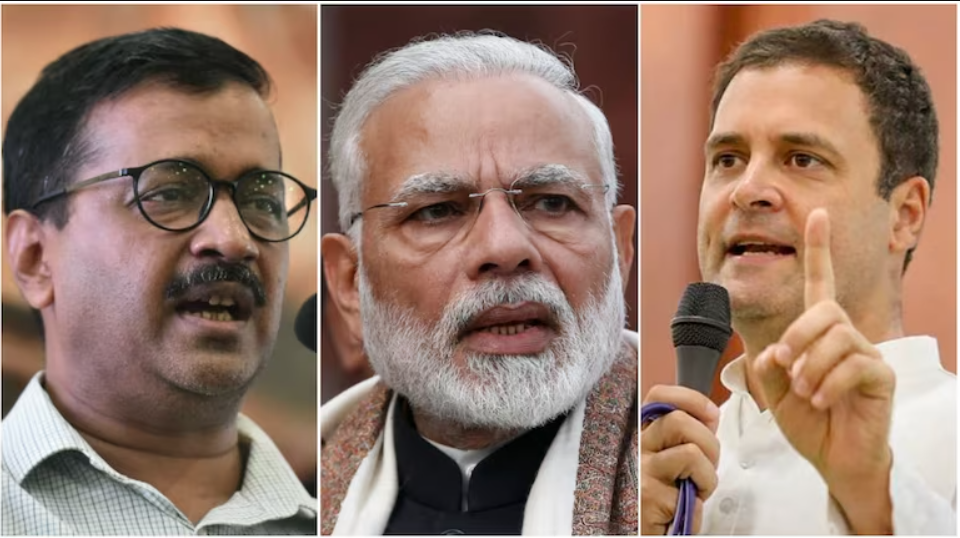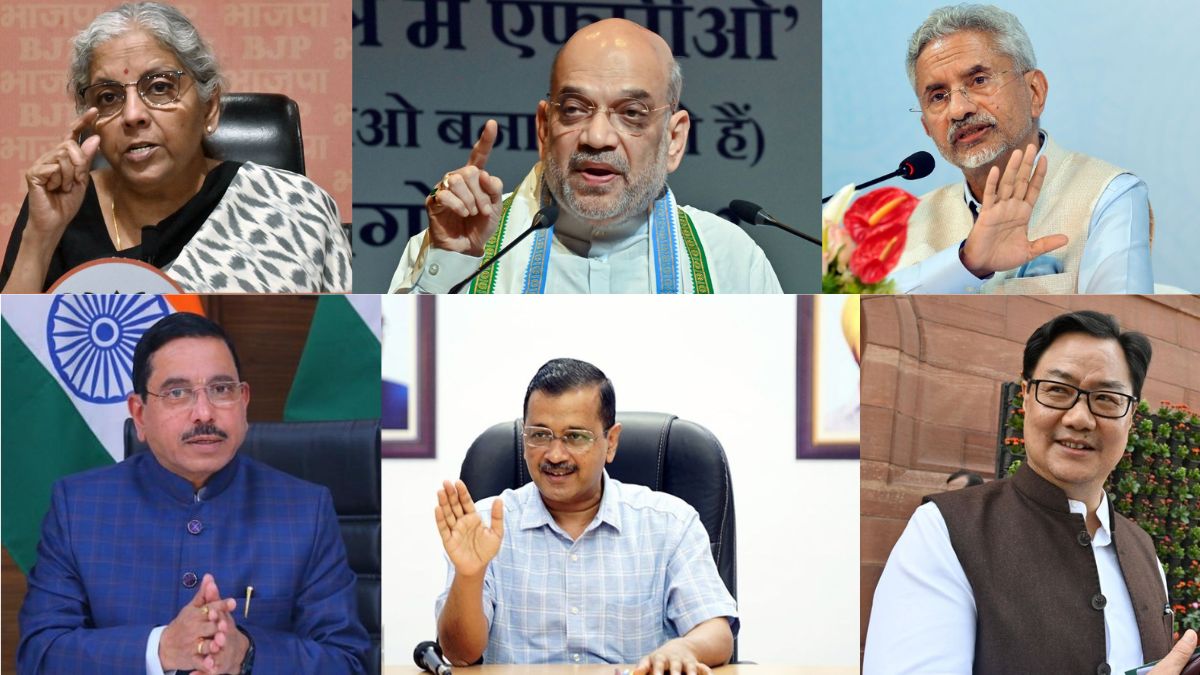New Delhi – The Indian political landscape was jolted today by a polarizing announcement from the Congress Central Election Committee (CEC). In a move that has sent shockwaves across the nation and raised many eyebrows, the Congress party revealed its decision to form an alliance with a surprising partner ahead of the upcoming state elections. This announcement has sparked widespread debate, both within the party and among political observers, as it signifies a significant shift in political alliances and strategies. Let’s delve deep into the details of this announcement and its potential implications for Indian politics.
Table of Contents
The Unprecedented Alliance
The Congress party, one of the oldest and most prominent political parties in India, announced its intention to form an alliance with the Aam Aadmi Party (AAP), a relatively new entrant in the Indian political arena. The announcement was made at a press conference held at the Congress headquarters in New Delhi, where the party’s top leadership, including the Congress President and several senior leaders, addressed the media.
The decision to align with AAP came as a surprise to many, as the two parties have historically been political rivals, often locking horns in various states, including Delhi. The Congress has, in the past, criticized the AAP for its populist policies and confrontational style of governance, while the AAP has accused the Congress of being corrupt and ineffective.

The Congress leadership, however, presented this alliance as a pragmatic move, citing the need to counter the growing influence of the ruling Bharatiya Janata Party (BJP) and its allies across multiple states. They emphasized the common goal of defeating the BJP and the need to put aside differences for the greater good.
Highlights of the Announcement
1. Common Goals: The alliance’s primary goal is to challenge the BJP’s dominance in upcoming state elections, particularly in states like Uttar Pradesh, Punjab, and Goa. Both Congress and AAP leaders expressed concerns about the increasing polarizing and divisive politics of the BJP and the need to protect India’s secular and democratic values.
2. Seat-Sharing Agreement: The Congress-AAP alliance includes a seat-sharing agreement for the upcoming state elections. According to the agreement, the two parties will jointly contest elections in several states, with Congress primarily taking the lead in some and AAP in others. The allocation of seats has been a topic of discussion within the alliance, as both parties have strongholds in different regions.
3. Common Minimum Program: A common minimum program (CMP) is being developed to outline the shared objectives and policies of the alliance. The CMP is expected to address issues such as economic growth, social welfare, education, and healthcare. It aims to present a united front on these key issues.
4. Coalition Government: If the alliance secures a majority in the states where they are jointly contesting, they intend to form a coalition government, with power-sharing arrangements. The specifics of power-sharing are yet to be finalized and are likely to be a subject of negotiation between the two parties.

5. National Implications: This alliance is not limited to state elections; it has the potential to reshape the national political landscape. The Congress and AAP have hinted at the possibility of extending their alliance to the 2024 general elections, where they aim to challenge the BJP at the national level.
Reactions and Implications
The announcement of the Congress-AAP alliance has elicited a wide range of reactions from various quarters, with many political pundits and citizens expressing their views on the development.
1. Congress-AAP Supporters: Supporters of both Congress and AAP have generally welcomed the alliance, seeing it as a strategic move to counter the BJP. They hope that a unified front will be more effective in defeating the BJP and countering its policies, which they believe are detrimental to India’s secular fabric.
2. Critics of the Alliance: The alliance has faced criticism from several quarters. Some Congress leaders and workers are concerned about the party compromising its ideology and principles by aligning with the AAP, which they view as ideologically distinct. Critics argue that the Congress’s leadership is making a desperate move in the face of electoral losses.
3. Impact on Regional Parties: The Congress-AAP alliance could have a significant impact on regional parties. In states like Punjab and Goa, where both Congress and AAP have a presence, regional parties like Shiromani Akali Dal, Aam Aadmi Party (Goa), and others are now grappling with the possibility of a formidable alliance as their main rival.
4. The BJP’s Response: The Bharatiya Janata Party has not remained silent on this development. BJP leaders have been quick to label the alliance as an opportunistic and unholy coalition that is averse to strong leadership. The BJP is expected to intensify its campaign, portraying itself as the only party capable of providing a stable and effective government.

5. Impact on Future Alliances: The Congress-AAP alliance may serve as a precedent for future political alliances in India. If this alliance proves successful in challenging the BJP, other opposition parties may also consider forming alliances to pool their resources and counter the ruling party’s dominance.
6. Internal Dynamics: The alliance poses challenges for both Congress and AAP. Within the Congress, several leaders who were opposed to the alliance have voiced their concerns, raising questions about the party’s unity. In AAP, there is concern among party members about aligning with a party that they have vehemently criticized in the past.
Election Scenarios
The announcement of the Congress-AAP alliance has set the stage for intriguing electoral scenarios in the upcoming state elections and, potentially, the 2024 general elections.
1. Uttar Pradesh: Uttar Pradesh is one of the key battleground states, and the alliance is expected to challenge the BJP’s dominance. The seat-sharing agreement and the common minimum program will play a crucial role in determining the electoral outcome.

2. Punjab: Punjab has been a traditional Congress stronghold, but the AAP has made significant inroads in recent years. The alliance is expected to face stiff competition from the incumbent Shiromani Akali Dal-BJP alliance.
3. Goa: Goa has a history of forming coalition governments, and the Congress-AAP alliance could be a formidable contender against the BJP-led coalition. The electoral dynamics are expected to be complex, with various regional parties in the mix.
4. National Elections: The alliance’s impact on the 2024 general elections is still speculative. If the Congress-AAP alliance manages to perform well in the state elections, it may encourage other opposition parties to form broader alliances against the BJP at the national level.
5. Congress Resurgence: The Indian National Congress, under the leadership of Kamal Nath, is looking to stage a comeback in the state. The Congress hopes to tap into voter dissatisfaction with certain policies of the BJP government and has been vocal about issues like unemployment and agrarian distress. Their campaign is expected to focus on these key concerns.
6. Madhya Pradesh: The Bharatiya Janata Party (BJP) is striving for a third consecutive term in Madhya Pradesh, led by Chief Minister Shivraj Singh Chouhan. The party is touting its development and governance record, with Chouhan enjoying considerable popularity in the state. The BJP’s strong organizational presence and a unified leadership give them an edge.
Barriers For Congress
While the Congress-AAP alliance presents a united front to challenge the BJP, it also faces several challenges and hurdles that need to be navigated for its success.
1. Ideological Differences: The Congress and AAP have had significant ideological differences in the past. The alliance must find common ground and reconcile their policy positions to present a cohesive message to voters.
2. Leadership and Power-Sharing: Determining leadership roles and power-sharing arrangements, especially in states where both parties are strong, could be a contentious issue. Both parties have leaders with significant ambitions, and negotiations will play a vital role in shaping the coalition’s dynamics.
3. Sustaining Unity: Maintaining unity within the alliance, particularly in the face of potential electoral setbacks, is crucial. Disagreements and disputes could weaken the alliance and hamper its effectiveness.

4. Voter Perception: Convincing voters of the alliance’s sincerity and commitment to common objectives will be a challenge. Voters
may question the timing and motivations behind the alliance, and both parties must work to address these concerns.
5. Regional Dynamics: In states with strong regional parties, the alliance’s success may depend on its ability to form tactical alliances or gain the support of regional players. Negotiating these dynamics can be complex.
What’s to Come
The Congress-AAP alliance marks a significant turning point in Indian politics, potentially reshaping the dynamics of the opposition and the electoral landscape. As the state elections draw closer and the parties finalize the details of their alliance, the political atmosphere is sure to heat up. The results of these state elections, especially in Uttar Pradesh, Punjab, and Goa, will provide a clearer picture of the alliance’s impact on the ground.

The alliance’s success in countering the BJP’s electoral dominance and presenting a united front will have a profound impact on the nation’s political future, including the 2024 general elections. Whether it is the emergence of a formidable opposition alliance or the unraveling of a challenging experiment, the Congress-AAP partnership is a development that every political observer in India will be closely monitoring in the coming months.
Conclusion
The Congress-AAP alliance announcement on October 15, 2023, has introduced a new chapter in Indian politics. It brings together two historically opposed parties in an attempt to challenge the ruling BJP’s electoral dominance. The success of this alliance will not only be a matter of political interest but will also influence the country’s trajectory in the years to come. The upcoming state elections and the potential extension of this alliance to the 2024 general elections promise to be defining moments in Indian politics, where the nation’s voters will have the final say on the wisdom and efficacy of this historic partnership.
Read More: Opposition Alliance’s Ultimate Power Move to Uproot BJP: The 2023 Strategy



